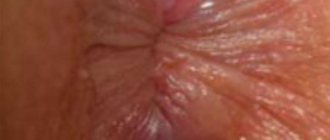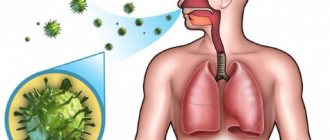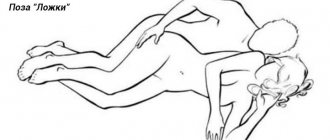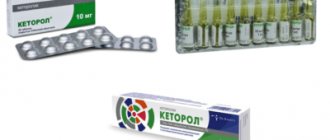Is it possible or not?
A visit to the dental office is a mandatory procedure for every pregnant woman. This is due to the fact that the oral cavity plays an important role for the body. Diseases and infections can easily enter the bloodstream and cause complications for both the mother and the baby. How to treat teeth while carrying a baby?
Treatment for the first time in the early stages
The first trimester is an important time. It is during this period that the formation and laying of internal organs and life support systems occurs. Any negative impact can have serious consequences for the fetus. Therefore, doctors strongly recommend postponing any therapeutic measures that are carried out using strong medications. It is not advisable to remove a tooth, roots or nerve in the early stages. The doctor will try everything possible to postpone the surgery until a later date.
As for easier procedures: fillings, caries treatment - this can be done. A carious tooth, even if it does not bother a woman, poses a potential threat. It creates a favorable environment for the development of bacteria and harmful organisms. Therefore, the problem must be eliminated immediately; no anesthesia is required at this stage. The only restriction is that arsenic cannot be used.
Fillings can be installed chemically or light-cured.
Often during pregnancy, stomatitis and gingivitis occur - inflammation of the root region of the tooth and gums. This is usually due to a rare hormonal imbalance. At the first symptoms you should consult a doctor.
In cases where periodontitis or pulpitis occurs, treatment with an anesthetic is required, and an x-ray is also required. Modern devices have a low radiation dose and will not harm the baby, but such a procedure in the early stages is done strictly as prescribed by the doctor, and as a last resort.
Tartar removal is also allowed at any time. The treatment does not require pain relief, but is performed using ultrasound or special instruments.
During pregnancy planning, doctors strongly advise eliminating and curing all dental problems in order to avoid dental intervention directly during gestation.
Treatment of late caries
Dental treatment before childbirth is not advisable. The woman already has a large belly, which causes discomfort; possible nervousness and anxiety before the procedure can negatively affect her health: the tone of the uterus can provoke premature birth. But if there is caries, it must be eliminated so that the bacteria do not spread throughout the body and cause further complications. It is prohibited to use arsenic during treatment.
Dental care during pregnancy
When a future mother develops caries while carrying a child, she thinks about whether it is necessary to treat the tooth now, or whether it can be done after childbirth. Dentists do not recommend postponing therapy for a long time, because during pregnancy the diet and hormonal levels change, gum inflammation often develops, and a large amount of calcium from the female body goes to laying and building the baby’s skeleton.
All this accelerates the process of destruction of hard tooth tissues, which is why in a short time a small dark spot can turn into a large hole. That is why, especially during pregnancy, it is recommended to sanitize your mouth.
To reduce the likelihood of cavities and other dental diseases, a strong focus on prevention is essential.
- brush your teeth twice a day, morning and evening;
- in addition to brushes and pastes, use additional hygiene devices, including flosses, rinses, irrigators;
- choose personal care products taking into account the characteristics of your oral cavity: brushes of soft or medium hardness, pastes containing fluoride ions in a dosage of 1500 ppm;
- avoid aggressive substances in dental preparations, do not regularly use whitening pastes containing highly abrasive substances and carbamide peroxide;
- do office teeth cleaning every six months;
- eat healthy and balanced. Increase the content of calcium-rich foods in your diet;
- do not neglect your doctor’s recommendations regarding taking vitamins and minerals;
- Visit your dentist at least twice a year for a checkup.
Simple recommendations will help you maintain healthy teeth not only during pregnancy, but also after it.
Is it possible to use anesthesia to numb a tooth during an injection?
The tooth extraction procedure is accompanied by the administration of anesthesia for pain relief.
If under normal conditions it is absolutely safe, then during the gestational period there are restrictions. Many are still convinced that pregnant women should not use any anesthetics, but this is not true. In modern medicine, there are gentle drugs based on articaine and mepivacaine. These products contain a minimal amount of vasoconstrictor substances and have a local effect. It is safe and does not harm the child. Anesthesia is recommended for women without individual intolerance to the components, no earlier than 12-13 weeks of pregnancy.
General anesthesia and the use of lidocaine are prohibited.
What injections are given, is Ubistezin used in treatment?
Permitted anesthetics during the gestational period:
- Ultracaine is one of the popular remedies;
- Ubistezin – acts quickly and has low toxicity;
- Primacaine – not used in the third trimester;
- Mepivastezin (Scandonest) – is used when a woman in labor has contraindications to adrenaline anesthetics, or has a pregnancy with pathologies.
The dentist makes an injection into the gum to turn off sensitivity, then performs the necessary manipulations.
If the drug is correctly selected, neither the mother nor the fetus will be harmed. Ubistezin is acceptable for treatment of a pregnant woman. The product is an analogue of Ultracaine, but contains fewer toxins and quickly has an effect. But it is prohibited when:
- anemia;
- bronchial asthma;
- intolerance to components of sulfo groups.
Pain relief is prohibited in the first trimester and before childbirth. In exceptional cases, the doctor may insist on using an anesthetic.
From what week can you inject an anesthetic into the gum near the tooth?
The recommended period for dental treatment using anesthesia is the second trimester, starting from 12-13 weeks of pregnancy. This time is considered the most suitable for these procedures, because the main organs and systems of the fetus are formed, and the placenta protects the child from the penetration of harmful substances.
If there are indications for tooth extraction surgery, anesthetics can be used at any time. The main thing is to choose the right drug and the required dose.
When not to use anesthesia
In the first trimester, pain relief is prohibited, because the embryo is being fixed and the further formation of organs and life support systems occurs.
Any impact can negatively affect this process.
Before giving birth, it is advisable to exclude dental treatment activities. Stress and anxiety, the use of drugs, can cause premature birth.
If you need to pull out a tooth by the root
In a situation where it is necessary to remove a tooth by its roots, the doctor assesses the degree of risk and threat. In the first and last trimester, such procedures are undesirable. But, if there is no other way out, then the dentist selects a safe anesthesia drug and removes the diseased tooth.
Is it possible to have anesthesia during pregnancy and at what stage?
When a pregnant woman is faced with the need for dental treatment, she is faced with the question: is anesthesia in dentistry safe during pregnancy in the 1st, 2nd and 3rd trimester? The answer is not so simple and depends on a number of conditions, including the state of health and well-being of the expectant mother and baby.
For fear of harming their child in one way or another, women often refuse dental procedures altogether, thereby exposing the child to even greater risk. When solving any medical problem, it is always necessary to take into account the potential risk/benefit ratio and make a choice based on these parameters.
If your tooth hurts badly, what can you drink before visiting the dentist?
If the pain is severe, you can use a warm decoction to rinse your mouth to relieve discomfort before visiting the dentist. Herbs suitable for this:
- calendula;
- chamomile;
- series;
- yarrow.
Traditional methods of pain relief:
- sprinkle cloves (table seasoning) on the inflamed gum;
- put an aloe or kalanchoe leaf on the sore spot;
- lard or onion juice will help eliminate aching pain;
- Apply a cotton swab soaked in dental drops to the gum.
You need to use traditional medicine carefully; it is better to consult a doctor before doing so.
Of the medications allowed during pregnancy, Paracetomol is safe. Take other painkillers (Aspirin, No-spa and others) only as prescribed by the doctor.
Complications
Caries is a source of infection that, due to a weakened immune system, spreads throughout the body.
As a result of this, the woman begins to suffer from otitis media, bronchitis, runny nose and other colds. But, what is much worse, the microbes cause an infection inside the womb , which can result in a miscarriage or a malformation of the child.
Constant pain in a woman carrying a child can lead to uterine hypertonicity.
Even minor dental problems in the first months of pregnancy can lead to the development of serious diseases:
- caries - violation of the integrity of the enamel;
- pulpitis - an inflammatory process in nerve endings;
- periodontitis - death of the pulp and inflammation in the tissues located next to the lesion;
- gingivitis is an inflammatory process of the oral mucosa;
- granulomas - purulent formations near the root;
- cysts - purulent neoplasm at the apex of the root;
- stomatitis – point lesion of the oral cavity;
- abscess - an infectious process with accumulation of pus;
- periodontal disease – inflammatory processes in the gums and bone tissue;
- bone tissue atrophy - reduction in the volume of the jaw bone.
Inflammation of bone tissue in the mouth usually leads to serious complications and inflammation of the maxillary sinuses, ear cavity and purulent accumulations in them. Even simple plaque in conditions of weakened immunity causes the growth of stone and damage to the entire jaw apparatus.
Active carious processes also affect a woman’s well-being - they cause nausea, vomiting, acid-base imbalance and demineralization, not to mention changes in eating habits. Therefore, to the question “Is it possible to treat teeth during pregnancy?”, one must answer: “Of course, you can!”
Emergency conditions
A woman should understand that pain symptoms cannot be ignored. This puts the body into a state of stress and contributes to an additional release of adrenaline into the blood, which negatively affects the child.
At the first sign of discomfort in the oral cavity, you should consult a doctor to identify the cause. For example, a carious tooth in its early stages can be easily treated. But sometimes urgent surgery is required:
- the need for tooth extraction;
- purulent inflammation, periostitis, osteomyelitis;
- flux;
- pulpitis.
Every pregnant woman should know that treating teeth in an interesting position is allowed. Under no circumstances should pain be tolerated or ignored. In acute cases, the doctor will decide on the need to use anesthesia. The main thing is that the doctor selects the drug based on the gestation period and the individual characteristics of the woman in labor.
Why problems arise
It has long been believed that the fetus receives all useful vitamins and microelements through their consumption from the mother’s body.
This is a myth that has not been proven by scientists! For example, the fetus receives calcium for the formation of bone tissue from the mother’s food, but not from her bone tissue. There is a shortage of microelements, because now they enter the mother’s body in reduced quantities, but the main problem is changes in hormonal levels.
Is it possible to treat teeth during pregnancy?
With the onset of hormonal changes in the body, the following occurs:
- weakened immunity;
- lack of vitamins;
- softening of enamel;
- circulatory disorders;
- swelling;
- gingivitis;
- proliferation of caries.
Harmful microorganisms living in the mouth, due to reduced immunity, begin to multiply sharply, this leads to inflammation of the gum tissue, weakened teeth hurt and fall out. Is it possible to treat teeth during pregnancy or do I have to endure the pain?











